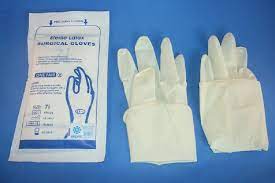Price of latex medical examination gloves in Ghana.

Medical examination gloves are an essential health commodity for Ghana. These non-sterile latex gloves provide protection for both healthcare workers and patients during medical procedures and examinations. For hospitals, clinics, and other healthcare facilities across Ghana, gloves represent a significant cost that directly impacts their budgets and ability to provide affordable care.
The pricing of latex gloves in Ghana is influenced by a variety of factors. This results in fluctuating costs that healthcare providers must stay on top of to keep their supplies well-stocked. Understanding the key factors that determine prevailing glove prices can help medical facilities better predict and plan for costs.
Price of latex medical examination gloves in Ghana.
Latex glove prices in Ghana typically range between GHS 2.50 and GHS 5 per 100 pieces for standard, powder-free gloves. Many hospitals and clinics are able to purchase boxes of 1,000 gloves for around GHS 120 to GHS 200. Prices may be lower when purchasing in bulk directly from manufacturers and exporters.
At the higher end, prices for premium latex gloves with additional coatings and protections can reach up to GHS 300 per box of 1,000. For specialized gloves, costs also rise significantly.
Prevailing market prices for most standard medical examination gloves tend to sit between GHS 2 and GHS 3 per 100 pieces when purchasing through local suppliers and distributors. There is considerable room for prices to shift up or down at any time.
Factors Influencing Latex Glove Costs
Global Supply and Demand Imbalances
As a product imported into Ghana, latex glove prices rely heavily on global supply chains and cost dynamics. Recent shortages and spikes in global demand have disrupted supply, leading to price hikes. As a downstream recipient of imports, Ghana has little control over these global market forces.
Input Material and Production Costs
Latex gloves are primarily made from natural rubber latex. Fluctuations in natural rubber prices, often due to supply and weather issues, directly impact manufacturing costs. Fuel, chemical, and labor costs during production also determine base costs.
Exporting Country Government Policies
Most gloves are imported from Asia. Policy decisions by major exporting countries like Malaysia and Thailand can restrict exports, leading to reduced supply and higher prices in Ghana. Export tariffs and quotas are two policy tools that alter costs.
Changing Import Regulations and Tariffs
As a significant import category, medical gloves fall under Ghana’s trade regulations. Increased tariffs and taxes raise the landed price significantly. Ghana’s policies toward essential imports like gloves also shape the market’s pricing.
Foreign Exchange Rates
- Advertisement -
Pricing on the global market uses benchmark currencies like the U.S. dollar. When the Ghanaian cedi depreciates compared to currencies like the dollar, this raises the effective price of imported gloves. A weak currency compounds other pricing factors.
In-Country Transportation, Storage, and Distribution
Once gloves reach Ghana, domestic transportation, warehousing, and distribution costs factor into final delivery pricing. Poor road infrastructure and limited climate-controlled storage add costs at this stage as well.
Conclusion
For Ghana’s healthcare sector, reliably securing latex gloves at affordable prices is an ongoing economic and supply chain challenge. Global dynamics, production costs, trade policies, currencies, and domestic infrastructure all play a role in shaping prevailing market prices.


